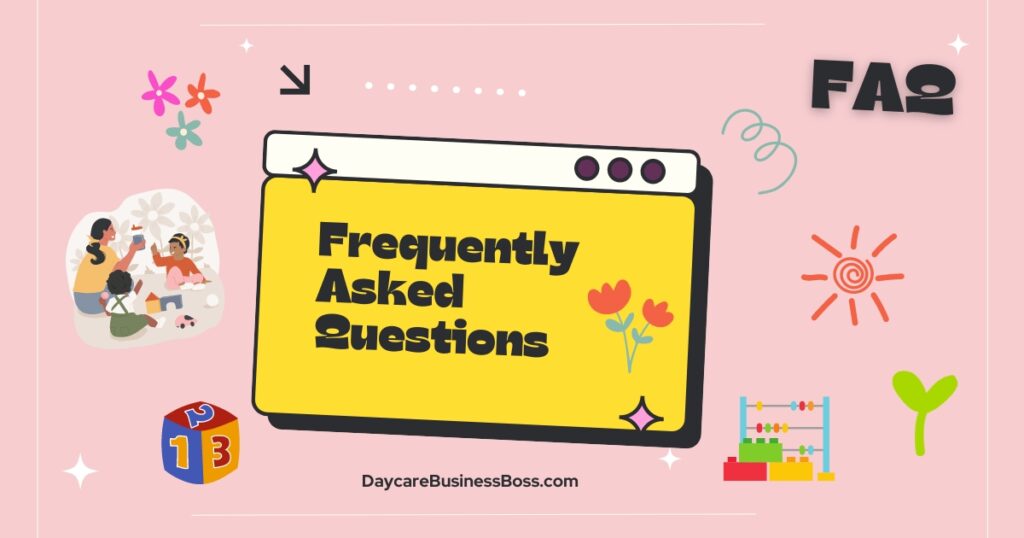Enrolling your child in a daycare program is a key step in their development. The decision to give them a supportive and enriching atmosphere throughout their formative years is unquestionably priceless. However, as parents, we understand that this undertaking is not without its financial challenges. The landscape of daycare course costs can be complex, containing a plethora of aspects that influence your investment in your child’s education and care.
To best understand daycare course fees, you should consider the significant variability based on location, duration, and curriculum. On average, they can range from $500 to $1500 per month. It’s best to contact specific daycare centers or institutions for accurate and up-to-date fee information.
Location Matters: Exploring Regional Disparities
When examining the expenses associated with daycare course fees, the geographical location of the daycare center is a crucial aspect that substantially determines the cost. The cost of daycare services varies greatly among regions, cities, and even neighborhoods. This variance reflects the various economic landscapes, living standards, and demand dynamics that distinguish each region.
Urban areas, with their brisk economic activity and higher expense of living, frequently have higher daycare fees. The increased living expenses in these locations, which include rent, utilities, and numerous amenities, contribute to the daycare centers’ overall running costs. As a result, parents in urban regions should be prepared to devote a bigger amount of their income to childcare costs. The presence of working parents seeking dependable care for their children while they pursue professional duties increases the need for quality childcare services in urban areas. This increased demand, combined with restricted space availability, may drive up the cost of daycare services even more.
Rural locations, on the other hand, tend to have more affordable daycare choices. The reduced cost of living in certain areas has a direct impact on daycare providers’ operational costs. This can result in lower fees for parents looking for childcare options. Daycare centers in such places may have more spacious facilities, access to outdoor areas, and potentially lower staff salaries, all of which contribute to the cost-effectiveness of their services.
For parents or guardians looking for suitable childcare options, it is critical to undertake extensive research on the current daycare fees in their respective areas. Understanding the cost landscape can help with budgeting and financial planning, ensuring that they are well-prepared to meet the financial responsibilities that come with providing great daycare. Many factors, including the level of competition among childcare centers, the quality of services supplied, and any additional amenities provided, might influence the pricing within a specific community.
Read more about: Exploring Daycare Center Rental Rates: What to Expect and Why
Duration and Flexibility: Tailoring Fees to Schedule
The period of care necessary for a kid is a critical factor that has a substantial impact on childcare course fees. Parents’ different demands are recognized by daycare centers, which provide a range of services ranging from half-day programs to comprehensive full-time care. This personalized strategy seeks to satisfy the different expectations and situations of working parents. It’s critical to recognize that the level of care strongly connects with the cost structure, therefore parents must make informed decisions that meet both their child’s demands and their financial capacities.
The variety of care alternatives provided at daycare centers reflects modern families’ varied lifestyles. Half-day programs are a realistic option for parents looking for part-time care or who need to care for their child during specific hours. These programs not only provide socialization and educational experiences for children but also allow parents to reconcile work commitments with caregiving responsibilities. However, while half-day programs are often less expensive than full-time care, prices can still vary depending on criteria such as the center’s location, reputation, and services offered.
Full-time care choices, on the other hand, cater to parents who want extended childcare services due to their busy work schedules. These choices frequently feature longer hours of care as well as additional amenities and activities to keep youngsters occupied throughout the day. The convenience and comprehensiveness of full-time care are, of course, more expensive. Parents must review their finances and determine whether the benefits of full-time care coincide with their child’s developmental demands and their professional obligations.
In addition to the length of care, some daycare centers offer further flexibility through personalized scheduling. This means that parents can choose certain days or hours of care to accommodate their schedules. While this flexibility can be quite handy for parents who have irregular work hours or other commitments, it is vital to evaluate how it may affect the overall cost. Customized schedules may necessitate administrative adjustments and coordination, which may result in a higher charge structure.
Curriculum Complexity and Specialization

When it comes to the fees associated with the course, the curriculum provided by a daycare center is a crucial determinant. The breadth and depth of educational programs offered are critical in creating the pricing structure, as they represent the resources, experience, and specialized training required to effectively deliver these offers. Parents navigating the world of daycare providers are confronted with a plethora of curricular alternatives, each with its own set of cost ramifications.
Specialized programs, such as language immersion, arts-focused activities, or STEM instruction, frequently fetch higher costs. These customized tracks provide children with one-of-a-kind learning opportunities that go beyond the typical daycare curriculum. Language immersion programs, for example, introduce young brains to different languages and cultures, providing cognitive and cultural benefits that are worth paying for. Arts-based activities encourage creativity and self-expression, whereas STEM education instills critical thinking and problem-solving skills at a young age. The skill of the teachers, the availability of specialized materials, and the creation of engaging activities all contribute to the high cost of these programs.
When selecting specialized programs, parents must analyze whether these options correspond with their child’s interests and educational goals. While these programs are enriching, they may not be appropriate for every child. It is critical to carefully assess a child’s preferences and learning style before investing in a specific curriculum. To ensure that their child’s developmental needs are satisfied while simultaneously making financial decisions that are in line with their budget, parents should assess the potential advantages against the related costs.
Alternatively, parents looking to cut daycare costs without sacrificing quality may prefer centers with more generic curricula. These curricula often cover a wide range of educational topics, laying a solid basis for a child’s growth and development. Generalized curricula continue to provide meaningful learning experiences, socialization opportunities, and a nurturing environment, but at a lower cost due to the lack of specialist resources and training.
Exploring Average Costs
When it comes to daycare course expenses, it’s important to remember that they can range widely, with the average ranging from $500 to $1500 each month. This range serves as a key benchmark, giving parents an idea of the financial commitment associated with high-quality childcare. However, it is critical to understand that this numerical range is subject to significant change due to a variety of circumstances.
Low-cost daycare centers, which are located on the lower end of the fee spectrum, frequently focus on providing basic childcare services without considerable enrichment activities. While these institutions may provide a safe and caring environment for children, their services may be more streamlined, focusing on essential care needs. The costs charged by such institutions reflect this simplicity, giving them a more cost-effective option for parents who value basic care above extensive educational programs.
Higher-priced daycare choices, on the other hand, are at the top of the pricing scale for a reason. These facilities go above and beyond the basics, offering a wide range of educational, developmental, and extracurricular activities. Children may have access to specialized programs, advanced curriculum materials, and a profusion of enrichment activities meant to enhance cognitive, social, and physical growth in these settings. The higher fees connected with such institutions reflect the improved quality of treatment and the greater range of services provided.
In this range, parents must balance their financial concerns with their priorities. A careful assessment of one’s financial ability and personal values is required to pick the best daycare alternative. Parents should evaluate the degree of service, engagement, and enrichment that aligns with their family’s values and the developmental needs of their kids.
While money is important, it should not overwhelm the significance of providing children with a supportive and stimulating environment. Balancing the budget with the required level of care and educational involvement is a tricky issue that necessitates careful thought. Parents should strive for a harmonious balance, ensuring that the chosen daycare center not only fits within their financial constraints but also provides an environment in which their children can grow.
Read more about: Exploring Hourly Daycare Expenses: Factors and Variances
The Importance of Contacting Specific Daycare Centers
Navigating the complex world of daycare course costs can be a difficult task, as it is distinguished by great fluctuation and various concerns. To begin your trip with correct and relevant information, it is highly recommended that you communicate directly with the specific daycare facilities or institutions under consideration. While websites and brochures can provide early pricing estimates, the benefits of contacting the centers directly extend far beyond the initial figures.
Contacting daycare centers allows you to acquire detailed and up-to-date information tailored to your child’s specific needs and the current breadth of offers. While preliminary estimates may provide a basic notion of the cost, daycare centers may provide more detailed insights that take into account elements such as the specific program your kid would be enrolled in, the length of time necessary, and any other services that may be relevant. This individualized approach guarantees that you have the most up-to-date information, allowing you to make an informed decision based on your child’s needs.
Direct communication with daycare centers allows for a discussion about future financial opportunities, which can have a big impact on your decision-making process. Many centers provide discounts, scholarships, or financial aid programs that are not necessarily clearly stated on their websites or brochures. Engaging in a conversation with center personnel enables you to learn more about these possibilities and consider how they might fit into your family’s financial position. Such programs can help to relieve the financial strain of daycare expenses and make quality childcare more accessible.
Aside from financial concerns, the direct connection allows for an in-depth discussion about the center’s philosophy, curriculum, and overall approach to childcare. This contact provides you with a better knowledge of the center’s values, educational focus, and care quality. This knowledge is crucial in ensuring that the childcare center you choose meets your child’s developmental needs as well as your own goals for their development.
Frequently Asked Questions

What is the average cost of daycare classes?
The cost of a daycare course varies greatly depending on aspects such as location, duration, and curriculum. They can range from $500 to $1500 each month on average. However, actual expenses will vary greatly based on your situation and the daycare provider you choose.
What factors influence the variation in daycare course fees?
The geographical location of the center, the period of care required (half-day vs. full-day), and the complexity of the curriculum are all factors that influence childcare course fees. Costs may also be influenced by specialized programs such as language immersion or STEM education.
What is the significance of contacting individual daycare establishments for fee information?
It is critical to contact specific daycare centers directly because rates might change over time and may be influenced by special offers, discounts, or financial assistance alternatives. You may acquire reliable, up-to-date information tailored to your child’s needs and your budget by talking with the centers, allowing you to make an informed decision about the best daycare option for your family.
To learn more on how to start your own daycare checkout my startup documents here.
The information provided by DaycareBusinessBoss.com (“The Site”) is for general informational purposes only. All information on the Site is provided in good faith, however, we make no representation or warranty of any kind, express or implied, regarding the accuracy, adequacy, validity, reliability, availability or completeness of any information on the Site. Under no circumstance shall we have any liability to you for any loss or damage of any kind incurred as a result of the use of the Site or Reliance on any information provided on the Site. Your use of the Site and your reliance on any information on the Site is solely at your own risk.
This blog post is for educational purposes only and does not constitute legal advice. Please consult a legal expert to address your specific needs. Terms and Conditions. (https://daycarebusinessboss.com/terms-conditions/)

Meet Shawn Chun: Entrepreneur and Childcare Business Fan.
I’m a happy individual who happens to be an entrepreneur. I have owned several types of businesses in my life from a coffee shop to an import and export business to an online review business plus a few more and now I create online daycare business resources for those interested in starting new ventures. It’s demanding work but I love it. I do it for those passionate about their business and their goals. That’s why when I meet a childcare business owner, I see myself. I know how hard the struggle is to retain clients, find good employees and keep the business growing all while trying to stay competitive.
That’s why I created Daycare Business Boss: I want to help childcare business owners like you build a thriving business that brings you endless joy and supports your ideal lifestyle.

